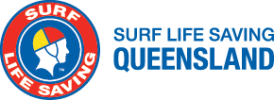Patrols are wide open to the public view and patrol members are constantly watched by beach visitors.
The primary role of a patrol member is to observe and protect water users. Because of the nature and variety of facilities that are provided at beaches, patrol members also provide a service to the public.
With this in mind, extensive courtesy should be paid to all persons requesting assistance, even those who are making a complaint. The fact that a beach user is being rude does not justify a patrol member to conduct themselves the same way.
Patrol members must learn to keep an even temperament and a helpful approach, regardless of how they are treated by others – this reflects a major aspect of a professional demeanour.
Best Practice Guidelines
Give courteous attention to the beach visitor, answering all questions asked:
- When asked a question to which a patrol member cannot supply an answer, the patrol member should politely direct the visitor to a source where the information is available;
- When speaking to a beach visitor, it is usually politer to remove sunglasses and maintain eye contact at a similar level to the visitor.
Be prepared to supply beach visitors with answers to commonly asked questions:
- Examples are air and water temperatures, tide times, weather forecasts, the correct time, conditions and local by-laws;
- The beach report board should be kept current and neat with no unofficial remarks.
Only use Public address systems for official matters:
- Anything announced using a PA will be not only heard but also judged by all beach visitors who can hear it;
- Courtesy is of particular importance when messages are heard by large numbers of people.
Never reprimand an individual who has been rescued:
- The casualty will have already learned a lesson and will more than likely have a ‘bruised’ ego;
- If important to say anything to the casualty, try and direct it towards the reason they got into trouble and say something constructive to prevent them from getting into that situation again;
- Make the contact as diplomatic as possible.
Avoid lecturing beach visitors:
- If a point needs to be made, fully explain the rationale and request for compliance.
Provide your name, position and club to any person requesting the information:
- A patrol member who refuses such information suggests a need to hide from a complaint that may or may not be valid.
Address all people in a friendly and courteous manner:
- Avoid approaches that start with “hey you” or similar words as this will no doubt set the visitor in a defensive posture that will make understanding or compliance difficult;
- Whenever possible, visitors should be approached personally and spoken to individually;
- The use of public address systems, whistles and signals is good for general announcements but is often embarrassing when used to address individuals and should be avoided.
Violence
Violence is an incident in which a member is abused, threatened, or assaulted by a member of the public or colleague during the course of their duties, or even when not on duty but related to those duties.
Verbal abuse and threats are the most common and physical attacks are rare.
We all have an interest in eliminating violence. Violence can cause pain, suffering, and even disability or death if severe enough. Physical attacks can be dangerous, but serious or persistent verbal abuse can also damage our employee’s health through stress.
Any physical or verbal abuse suffered by any member should follow the procedures listed below.
In all cases, patrol members should try and calm the situation and move away.
- If possible, notify Surfcom stating your position and problem;
- Each available patrol member in the vicinity should then make every effort to move to the location and provide assistance using safe and legal means of transport.
Post Incident:
- Inform your patrol captain immediately;
- Complete an incident report in LIMSOC if required (take particular care to complete the narrative as thoroughly as possible and state the nature of the incident).



Post your comment on this topic.